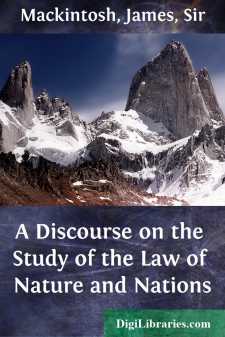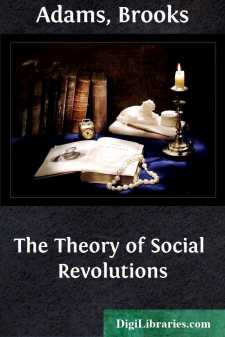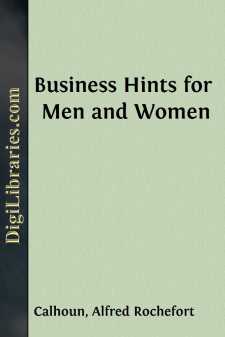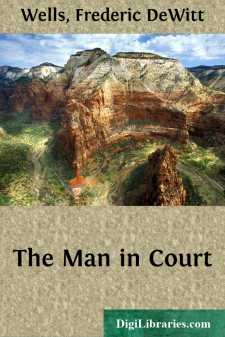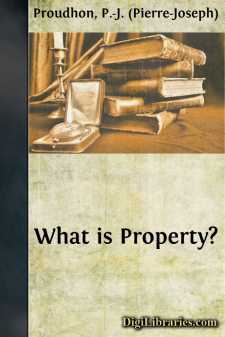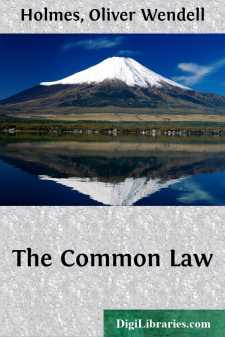Law
- Commercial 1
- Common 1
- Computer & Internet 1
- Constitutional 4
- Courts 3
- General 3
- International 1
- Military 1
- Natural Law 1
- Property 1
Law Books
Sort by:
by:
James Mackintosh
Before I begin a course of lectures on a science of great extent and importance, I think it my duty to lay before the public the reasons which have induced me to undertake such a labour, as well as a short account of the nature and objects of the course which I propose to deliver. I have always been unwilling to waste in unprofitable inactivity that leisure which the first years of my profession...
more...
by:
Brooks Adams
CHAPTER I THE COLLAPSE OF CAPITALISTIC GOVERNMENT Civilization, I apprehend, is nearly synonymous with order. However much we may differ touching such matters as the distribution of property, the domestic relations, the law of inheritance and the like, most of us, I should suppose, would agree that without order civilization, as we understand it, cannot exist. Now, although the optimist contends that,...
more...
CHAPTER I COMMON SENSE FARMING The three things essential to all wealth production are land, labor, and capital. "The dry land" was created before there appeared the man, the laborer, to work it. With his bare hands the worker could have done nothing with the land either as a grazer, a farmer or a miner. From the very first he needed capital, that is, the tools to work the land. The first tool...
more...
I In the Night Court the drama is vital and throbbing. As the saddest object to contemplate is a play where the essentials are wrong, so in this court the fundamentals of the law are the cause of making it an uncomfortable and pathetic spectacle. The women who are brought before the Night Court are not heroines, but the criminal law does not seem better than they. It makes little attempt to mitigate...
more...
The correspondence of P. J. Proudhon, the first volumes of which we publish to-day, has been collected since his death by the faithful and intelligent labors of his daughter, aided by a few friends. It was incomplete when submitted to Sainte Beuve, but the portion with which the illustrious academician became acquainted was sufficient to allow him to estimate it as a whole with that soundness of...
more...
In this matter the general conclusion follows from a single instance. For the moment it is admitted that in one case knowledge of a present fact, such as the other party's intent to act on the false statement, dispenses with proof of an intent to induce him to act upon it, it is admitted that the lesser element is all that is necessary in the larger compound. For intent embraces knowledge...
more...


